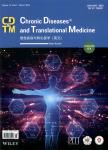Harnessing natural killer cells to develop next-generation cellular immunotherapy
Harnessing natural killer cells to develop next-generation cellular immunotherapy作者机构:Center for Translational Cancer ResearchInstitute of Biosciences and TechnologyTexasA&M UniversityHoustonTexasUSA Department of Translational Medical SciencesSchool of MedicineTexas A&M UniversityHoustonTexasUSA
出 版 物:《Chronic Diseases and Translational Medicine》 (慢性疾病与转化医学(英文版))
年 卷 期:2022年第8卷第4期
页 面:245-255页
核心收录:
学科分类:1002[医学-临床医学] 100214[医学-肿瘤学] 10[医学]
基 金:Cancer Prevention and Research Institute of Texas(Grant/Award Number:RP210070) National Cancer Institute(Grant/Award Number:R01CA232017) Welch Foundation(Grant/Award Number:BE-1913-20220331)
主 题:cancer CAR-NK immunotherapy chimeric antigen receptor(CAR) natural killer(NK)cells
摘 要:Cellular immunotherapy harnesses the body’’s own immune system to fight cancer by using engineered T cells,macrophages,or natural killer(NK)*** to chimeric antigen receptor T(CAR-T)cells that are commonly used to treat hematological malignancies,CAR-NK cells have shown remarkable therapeutic effectiveness while exhibiting enhanced safety,reduced risk of graft-versus-host disease,fewer side effects,and amplified antitumor *** trials have unveiled the high potential of adoptive CAR-NK cell therapy to curtail or even eliminate both hematological malignancies and solid tumors in animal *** brought forth herein the design principle of CAR-NK cells,highlighted the latest progress in the preclinical testing and clinical trials of CAR-NK cells,briefly delved into discussed major roadblocks in CAR-NK therapy,and discussed potential solutions to surmount these *** the accelerated progress in both basic and translational studies on immune cell engineering,CAR-NK cell therapy promises to become a serious contender and important addition to the next-generation cell-based immunotherapy.



